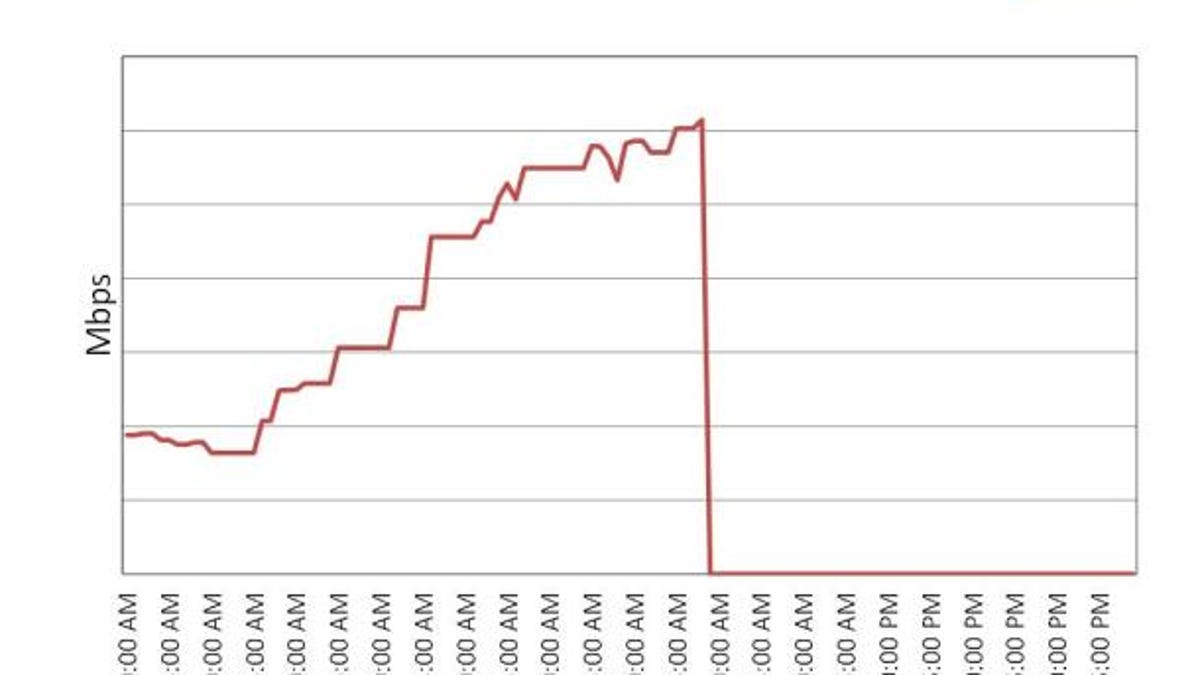War-torn Syria sees restoration of Net after two-day outage
The Internet is back online in most of the country after an outage some say was orchestrated by the government to disrupt opposition forces.

The Internet is back up in most parts of Syria, which had been experiencing what some say was a state-orchestrated outage presumably designed to hamper rebel forces.
The BBC reported today that the country's capital city of Damascus again had Net access, and Renesys, which operates a real-time grid that continuously monitors Internet routing data, said in a blog post today that it had confirmed a "largely complete restoration of the Syrian Internet."
Renesys and other companies that offer back-end Net services detected a sharp cutoff in traffic to Syria on Thursday. According to Reuters, Syria's minister of information blamed the outage on terrorists, not state actions. But one Internet firm, CloudFlare, said that explanation was "unlikely to be the case," and, as noted by the BBC, the U.S. State Department pinned the cut in communications on the Syrian government.
The secretary general of the United Nations said civilians were being massacred almost daily across Syria, with both sides in the civil war committing wide-scale human-rights violations, the BBC reported. The uprising against President Bashar al-Assad began in March 2011, during the Arab Spring, and an earlier blackout happened in Syria in the summer of that year.
The Syrian blackouts are reminiscent of Internet failures in other countries that seem meant to control the dissemination of information via the Net. In early November, for example, China experienced an outage that coincided with the start of the once-a-decade meeting to appoint a new Communist government, a meeting that throughout its history has served as a flashpoint for protest.
Yesterday, prior to the restoration of Net access in Syria, Google and Twitter restarted their Speak2Tweet service to let people send tweets via voice-mail messages as a way to sidestep the blackout. Apparently, however, some mobile phones and landlines were also being hamstrung during the outage.

